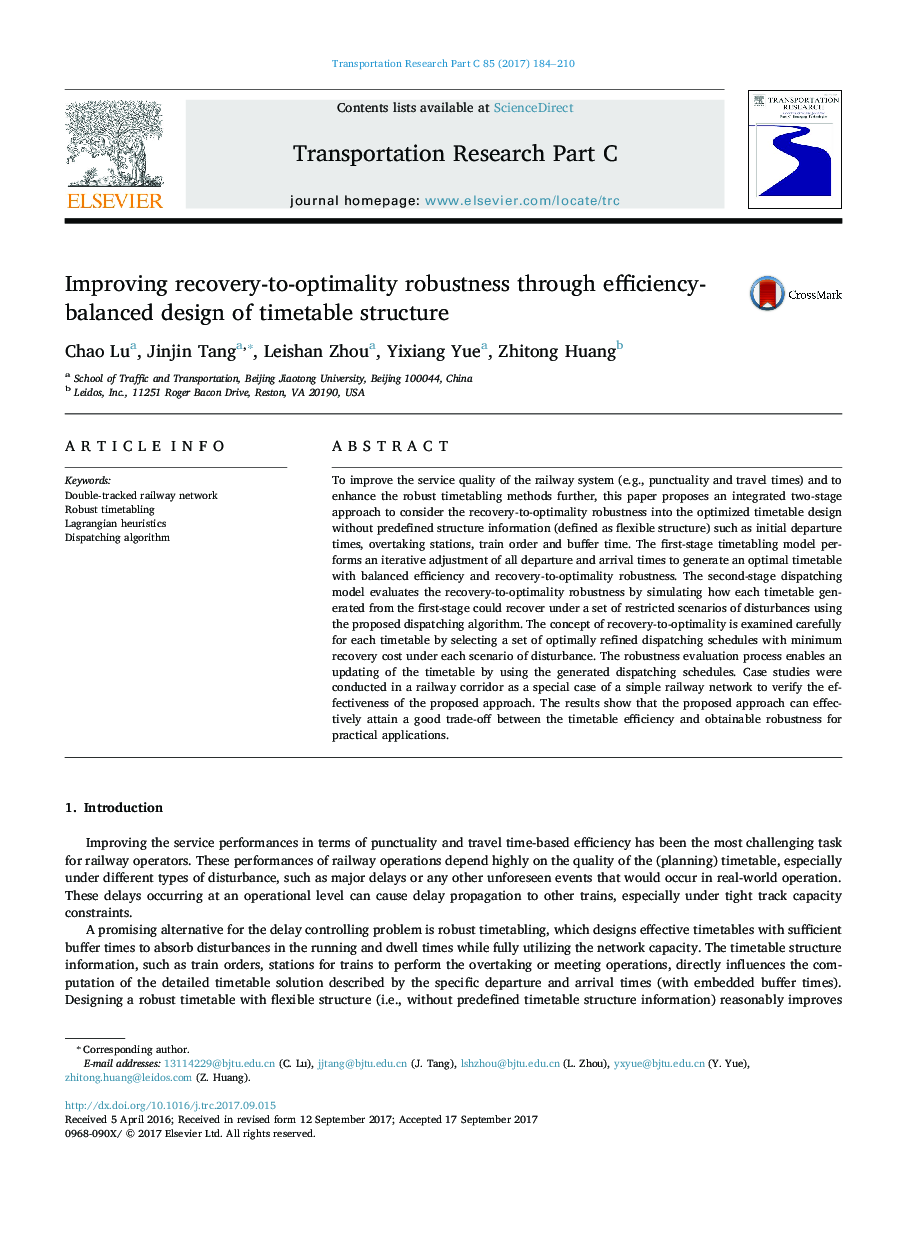| Article ID | Journal | Published Year | Pages | File Type |
|---|---|---|---|---|
| 4968384 | Transportation Research Part C: Emerging Technologies | 2017 | 27 Pages |
Abstract
To improve the service quality of the railway system (e.g., punctuality and travel times) and to enhance the robust timetabling methods further, this paper proposes an integrated two-stage approach to consider the recovery-to-optimality robustness into the optimized timetable design without predefined structure information (defined as flexible structure) such as initial departure times, overtaking stations, train order and buffer time. The first-stage timetabling model performs an iterative adjustment of all departure and arrival times to generate an optimal timetable with balanced efficiency and recovery-to-optimality robustness. The second-stage dispatching model evaluates the recovery-to-optimality robustness by simulating how each timetable generated from the first-stage could recover under a set of restricted scenarios of disturbances using the proposed dispatching algorithm. The concept of recovery-to-optimality is examined carefully for each timetable by selecting a set of optimally refined dispatching schedules with minimum recovery cost under each scenario of disturbance. The robustness evaluation process enables an updating of the timetable by using the generated dispatching schedules. Case studies were conducted in a railway corridor as a special case of a simple railway network to verify the effectiveness of the proposed approach. The results show that the proposed approach can effectively attain a good trade-off between the timetable efficiency and obtainable robustness for practical applications.
Keywords
Related Topics
Physical Sciences and Engineering
Computer Science
Computer Science Applications
Authors
Chao Lu, Jinjin Tang, Leishan Zhou, Yixiang Yue, Zhitong Huang,
